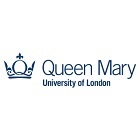- 最新资讯及文章
- Find usIDP AustraliaIDP BahrainIDP BangladeshIDP CambodiaIDP CanadaIDP ChinaIDP EgyptIDP GhanaIDP Hong KongIDP IndiaIDP IndonesiaIDP IranIDP JordanIDP KenyaIDP KoreaIDP KuwaitIDP LebanonIDP MalaysiaIDP MauritiusIDP Middle EastIDP NepalIDP New ZealandIDP NigeriaIDP OmanIDP PakistanIDP PhilippinesIDP Saudi ArabiaIDP SingaporeIDP Sri LankaIDP Taiwan, ChinaIDP ThailandIDP TurkeyIDP UAEIDP VietnamIDP Corporate
- Social
- 简体中文
- Where we operate
- Courses
- Scholarships
- IELTS
- About IDP
- 留学生活服务
- 最新资讯及文章
- Find us
- Find us
- Find nearest IDP offices
- IDP Australia
- IDP Bahrain
- IDP Bangladesh
- IDP Cambodia
- IDP Canada
- IDP China
- IDP Egypt
- IDP Ghana
- IDP Hong Kong
- IDP India
- IDP Indonesia
- IDP Iran
- IDP Jordan
- IDP Kenya
- IDP Korea
- IDP Kuwait
- IDP Lebanon
- IDP Malaysia
- IDP Mauritius
- IDP Middle East
- IDP Nepal
- IDP New Zealand
- IDP Nigeria
- IDP Oman
- IDP Pakistan
- IDP Philippines
- IDP Saudi Arabia
- IDP Singapore
- IDP Sri Lanka
- IDP Taiwan, China
- IDP Thailand
- IDP Turkey
- IDP UAE
- IDP Vietnam
- IDP Corporate
- Social
- 切换语言
- IDP教育 /
- 学院及大学 /
- United Kingdom /
- 倫敦大學瑪莉皇后學院 /
- MA Creative Writing


地点
United Kingdom
资格
Masters Degree (Taught)
时长
1 Year(s)
下个学年
15 September 2025
入学成绩
7.0
IELTS考试COURSE_INFO
you can join the editorial team or submit to our fabulous literary journal Subtexts, gaining vital experience in publishing from both sides.Creative Writing at Queen Mary has a diverse and dynamic research culture that welcomes writers who want to experiment, innovate, take risks and push boundaries of form and genre. If you are ready to take your writing to the next level, to find your own distinctive voice and subject, and to be challenged and inspired to produce your best work, we would love to hear from you.AssessmentCritical and research essaysClose-reading exercises and critical commentariesWritten exercises (e.g. blog posts, blurbs, walking journals, creative non-fiction, reviews, imitations, bibliographical exercises)Translation exercisesPresentations (group and individual), postersPortfolios (written and e-portfolios), log books and learning journalsPerformance projects (group and individual)Multi-media (e.g. podcasts, annotated videos, websites)DissertationCareer pathsThe MA Creative Writing provides a grounding in research methodologies and practices for students who intended to progress to doctoral work, an enhanced understanding of the study of literature relevant to students who intended to follow a teaching career, and improved competence in transferable skills valued more generally in the market place, including the analysis of complex evidence, the oral and written presentation of arguments and information, and effective time-management. Employer feedback has particularly valued the research skills and high level of critical thinking acquired by graduates of similar MA programmes and the contribution these make to the problem-solving abilities required of those who work at senior levels in complex organizations.
- 奖学金 查看所有奖学金
- 实习
入学要求 倫敦大學瑪莉皇后學院
Degree requirements – You need a 2:1 or above or above at undergraduate level in a humanities discipline such as English, History, Cultural Studies or Media Studies. Applicants are required to submit a sample of creative writing (between 1,000 and 2,000 words). This sample may include fiction, non-fiction, poetry or unclassifiable/hybrid writing. Other routes - Promising applicants who do not meet the formal academic criteria but who possess relevant credentials and who can demonstrate their potential to produce written work at Masters level will also be considered on an individual basis. As part of the admissions process we may interview candidates. Applications from mature and non-traditional candidates are welcomed. IELTS (Academic) minimum score 7.0 overall with 6.0 in each of Writing, Listening, Reading and Speaking.
申请截止日期
申请截止日期无法使用 与升学顾问对谈 了解更多细节资讯
Further information
If you aren't eligible for the above entry requirements, you might ant to explore pathway options at 倫敦大學瑪莉皇后學院. If you want to find out more, speak to our counsellors.
泰晤士高等教育世界大学排名 (THE)
141st / 1250
泰晤士高等教育世界大学排名 (THE)53rd / 130
完全大学指南 (Complete University Guide)IDP学生心声
暂时没有收到对此大学的评分。
推荐给你
- 硕士
- United Kingdom
- 资金类型: Fee waiver/discount
- 硕士
- United Kingdom
- 资金类型: Fee waiver/discount
- 硕士
- United Kingdom
- 资金类型: Fee waiver/discount
- 硕士
- United Kingdom
- 资金类型: Fee waiver/discount
Your action plan
步骤 1
Shortlist your courses
Choose the best three courses you’re most likely to pursue.
步骤 2
Check your eligibility
Get an instant in-principle offer for courses with the IDP FastLane tag.
步骤 3
Apply through IDP Live
Fill out the form once and use it to apply to multiple courses.
IDP FastLane 如何运作?
通过FastLane的「原则性录取通知」,你将在几分钟内知道自己是否获取录!
选择一个院校机构和课程
建立你的学术个人档案
提交你的《原则性录取通知》申请
你选择的机构将会在几分钟内发送结果!
与升学顾问一起准备申请




